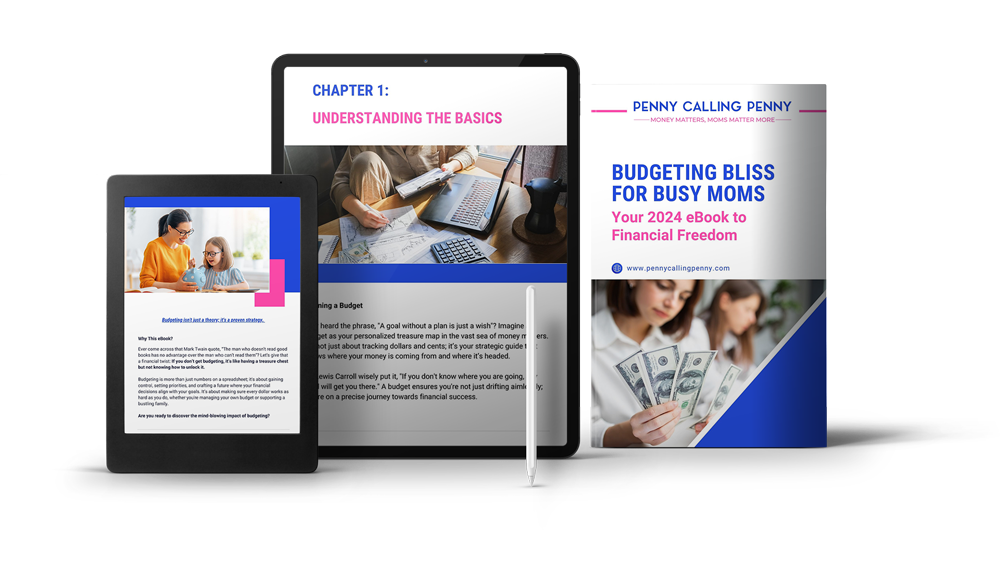Level - 5
Budgeting
“Budgeting has only one rule: do not go over budget.” – Leslie Tayne
Picture this: it’s payday, and you feel good about the money you just received. So, you treat yourself to a shopping spree, eat out at a fancy restaurants and splurge on entertainment by watching the news Marvel movie at the cinema.
By the end of the day, you’ve made a dent in your hard-earned income and are left with a limited amount for the rest of the month. Suddenly, unexpected expenses pop up, and you struggle to make ends meet. Sounds like a financial nightmare, doesn’t it? This is where budgeting comes in as an important tool.
The importance of budgeting cannot be overstated, as it serves as the foundation of effective personal finance management. Creating and maintaining a budget allows you to take control of your finances and make informed decisions about your spending and saving habits. By adhering to this single rule, you can experience a range of benefits that contribute to your overall financial well-being.

Why is budgeting important?
Financial Awareness

Budgeting provides a clear picture of your financial situation, allowing you to understand where your money is going and identify areas for improvement. By tracking your expenses, you can spot trends and uncover opportunities to cut costs and make more efficient use of your resources.
Goal Setting

A budget enables you to set and track financial goals, such as saving for a down payment on a house or funding your children’s education. With a budget in place, you can allocate funds towards these goals and monitor your progress over time, ensuring you stay focused and committed to achieving them.
Debt Management

By creating a budget, you can prioritize debt repayment and develop a plan to become debt-free. Allocating funds specifically for debt repayment can help you reduce interest costs and eliminate the financial burden of debt more quickly.
Emergency Preparedness

A budget helps you establish an emergency fund, ensuring you have the financial resources to handle unexpected expenses without relying on debt. By setting aside money in an emergency fund, you can protect yourself from financial setbacks and maintain your financial stability during difficult times.
Long-term Financial Success

A well-structured budget promotes responsible spending and saving habits, setting you on the path to achieving your financial goals and securing your financial future. By consistently adhering to your budget, you can create a strong foundation for long-term financial success, giving you the confidence and security to pursue your dreams.
In conclusion, budgeting plays a critical role in personal finance management. By following the simple rule of not going over budget, you can gain financial awareness, set and achieve goals, manage debt, prepare for emergencies, and build a solid foundation for long-term financial success. By committing to a budget and making informed decisions about your spending and saving habits, you can take control of your finances and create a brighter financial future for yourself and your family.
How To Create A Budget?
Understanding how to create a budget is an essential skill for managing personal finances effectively. A well-crafted budget enables you to gain control over your spending, save for your financial goals, and improve your overall financial well-being.
Here’s a step-by-step guide on how to create a budget that works for you:

Determine Your Income

Start by calculating your total monthly income from all sources, such as your salary, freelance work, rental income, dividends, or any other streams of money.
Make sure to include both regular and irregular sources of income, ensuring that you have a comprehensive understanding of your financial resources.
List Your Expenses

Next, identify all of your monthly expenses, including rent or mortgage payments, utilities, groceries, transportation, insurance, and entertainment. It’s crucial to be thorough and include every expense, no matter how small. Once you have listed all your expenses, categorize them as fixed (necessary) or discretionary (optional) to gain a better understanding of your spending habits.
Set Financial Goals

Establish both short-term and long-term financial goals that align with your financial priorities and aspirations. These may include paying off debt, building an emergency fund, saving for a vacation, or planning for retirement.
Clearly defining your goals will help guide your budgeting process and ensure that you allocate resources accordingly.
Allocate Your Funds

With your income, expenses, and goals in mind, allocate your money to each category, ensuring that your expenses and savings contributions do not exceed your income. This may involve making adjustments to your discretionary spending or finding ways to increase your income to accommodate your financial goals.
Track and Adjust

Regularly track your spending and compare it to your budget, making note of any discrepancies. If you find that you’re overspending in certain areas or not meeting your savings targets, adjust your budget accordingly to maintain balance and stay on track with your financial goals.
There are numerous budgeting approaches available, each catering to different financial situations and preferences. To help you find the method that works best for you, we’ve compiled a list of some popular budgeting techniques:
The 50-20-30 Budget Rule

This popular 50-20-30 budgeting method provides a straightforward framework for allocating your income. It suggests dividing your after-tax income into three categories: 50% for essential expenses (such as housing, utilities, and groceries), 20% for financial goals (such as saving, investing, or debt repayment), and 30% for discretionary spending (such as entertainment, dining out, or hobbies).
Zero-Based Budgeting

Zero-based budgeting involves allocating every dollar of your income to a specific purpose, leaving no unassigned funds. This method requires you to justify each expense and assign it a category, ensuring that you have a detailed understanding of your spending habits and financial priorities. Zero-based budgeting can be particularly helpful for those looking to gain greater control over their finances or eliminate wasteful spending.
Other Methods

In addition to the 50-20-30 rule and zero-based budgeting, there are several other budgeting methods that can help you manage your finances effectively. By exploring a range of techniques, you can find the approach that best suits your financial situation, goals, and preferences. Some of these methods include envelope budgeting, the pay-yourself-first strategy, and the reverse budgeting method.
Remember, there’s no one-size-fits-all solution when it comes to budgeting. Take the time to explore various approaches, and don’t be afraid to experiment until you find the method that works best for you. With the right budgeting strategy, you can gain control of your finances, achieve your financial goals, and build a solid foundation for long-term financial success.
Resources For Budgeting
There is a wealth of resources available to help you understand budgeting and improve your personal finance skills. Here is a list of YouTube videos, podcasts, books, articles, apps, and websites that can guide you on your budgeting journey:
By utilizing these resources, you’ll be better equipped to create and maintain a budget that works for your unique financial situation. Explore different tools and methods to find the one that best fits your needs and preferences. With dedication and consistency, you’ll soon see the benefits of budgeting in your financial life.










